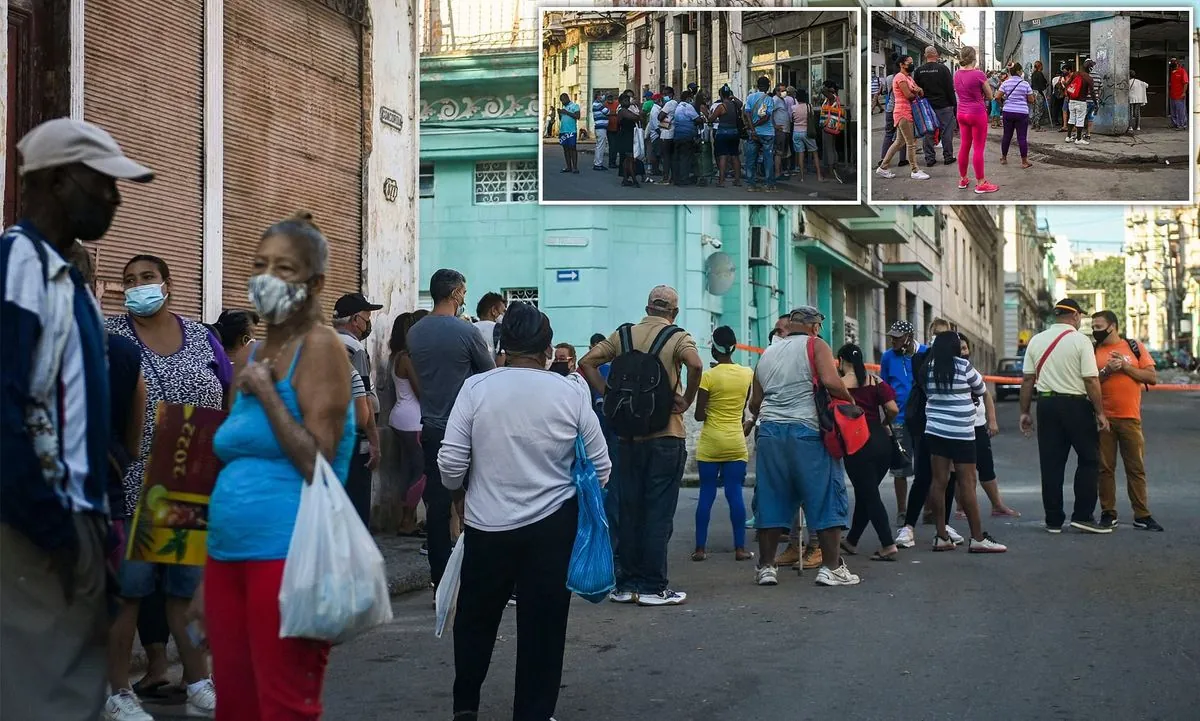Cuba's government has acknowledged that its economic recovery plan is advancing, albeit at a slower pace than desired, as reported by state-run media. This comes as the Caribbean nation grapples with an unprecedented economic crisis, leaving millions without access to basic utilities.
Cuba, the largest island in the Caribbean Sea with a population of approximately 11 million, is currently facing severe challenges. Over one million residents, roughly 10% of the population, lack running water, while the majority endure daily power outages lasting several hours. Shortages of food, fuel, and medicine are widespread, affecting nearly all citizens.
Joaquin Alonso, Cuba's economy minister, addressed the Council of Ministers, stating that the government's plan to address economic distortions is progressing, but not at the intended speed. This statement reflects the complex nature of Cuba's largely state-controlled economy, which has been under a U.S. trade embargo since 1962.
Since July 2024, the government has implemented various measures aimed at alleviating consumer hardships and revitalizing the economy. These include:
- Price caps on popular goods
- Budget cuts to control the fiscal deficit
- Reforms to private business regulations to increase tax revenue
Prime Minister Manuel Marrero reported "discrete advances" but acknowledged that the average Cuban is still experiencing significant hardships. He noted that while the measures have not yet impacted family economies, they are beginning to organize certain elements.
Cuba's economic woes are attributed to multiple factors:
- The long-standing U.S. trade embargo
- The COVID-19 pandemic's impact on tourism
- Internal bureaucracy and inefficiencies in the state-run model
Tourism, which accounts for about 10% of Cuba's GDP, has been particularly hard hit. This has severely limited the country's ability to generate the foreign currency needed to import essential goods.
Despite these challenges, Cuba maintains some notable achievements, including a literacy rate of nearly 100% and a high-quality healthcare system known for its medical diplomacy. The country also boasts one of the highest doctor-to-patient ratios globally.
The ongoing crisis has led to a record-breaking exodus, with over one million Cubans leaving the island since 2020. This mass migration has contributed to a crisis at the U.S. border and highlights the severity of the situation.
As Cuba struggles to recover, it faces the challenge of balancing its socialist principles with the need for economic reforms. The country has been exploring alternative solutions, such as transitioning towards renewable energy sources and developing its unique system of urban organic agriculture called "organopónicos."
While the government reports some progress in managing the fiscal deficit, the road to economic recovery remains long and complex for this island nation known for its rich cultural heritage, classic American cars, and vibrant musical traditions.
"They have not yet reached the family economy, but they are beginning to organize some elements."
As Cuba navigates this challenging period, the world watches to see how this resilient nation, with its significant biodiversity and endemic species, will adapt and evolve in the face of ongoing economic pressures.
